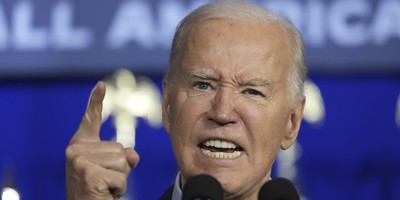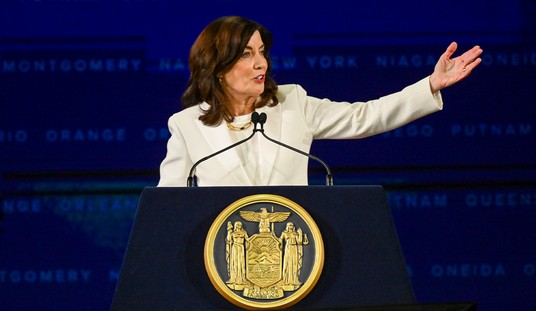It sounds so fair and so right. Just like health care for everyone, under a plan in which "if you like your doctor, you can keep your doctor." But so-called "Net neutrality," being pushed by the chairman of the Federal Communications Commission, is likely another power grab that will give the federal government vast control over the Internet. Years from now, this could make the Obama administration's efforts to control banks, health care and other major components of our economy look like small potatoes.
After having been "persuaded" by representatives of the White House, FCC Chairman Tom Wheeler finally announced that the commission is moving toward so-called Net neutrality rules. These rules would use old-fashioned ways to regulate Internet service providers that now deliver website access to our computers and handhelds. The move is veiled as a prohibition against huge service providers from entering into deals that give certain web-based platforms faster and easier access on the Internet on a "pay-to-play" basis.
For that (rather simplistic) intention, both Obama and the FCC -- which supposedly operates independently of the White House -- should be commended. Unfortunately, just like the Affordable Care Act, now loathed in public opinion polls, another seemingly altruistic program has become a tangled mess for a huge segment of our nation's economy and for our personal lives.
While the White House denies having any direct involvement in Chairman Wheeler's change of heart about Net neutrality, the president's views on the subject are widely known. And now Wheeler and a majority of his colleagues appear set to place one of the last symbols of the true American entrepreneurial spirit under the tight rein of the federal government.
The hidden power grab in this instance is the proposal to regulate the Internet as if it were a public utility. That means federal supervision, oversight, restrictions and -- down the road -- taxes. Suddenly the sea of information in which most Americans "surf" will include a lifeguard blowing his whistle, "no diving or swimming" signs on the information beach and, most likely in the future, fees just to enter the water.
Recommended
At first blush, and if implemented in a tightly restricted way, Net neutrality appears to be a savior to those who use the web, especially those who make their living on it. The concept in its purest form is that of treating all websites as equal, with no special treatment for deep-pocketed companies that can afford to pay big telecom companies extra cash for preferential treatment, for example to speed along their content over that of smaller and less affluent sites.
But as we have learned in recent years, no well-intentioned move by the federal government comes without an accompanying huge set of red tape, regulations, new powers and, ultimately, new sources of revenue for the government, paid either directly or indirectly by the consumer.
For example, under the Democrat-created Dodd-Frank bill, big banks, which needed a spanking after the economic meltdown of 2007, are now hogtied and bound. Some of the largest banks are being told by the Fed they have to up their capital reserves even more, further restricting their ability to put money back into the economy.
And day by day, Americans learn more about the legislation we "needed to read after it was passed," Obamacare. Millions are learning that their insurance deductibles are soaring and, of course, that they can't necessarily keep that longtime physician they were comfortable with -- and were promised they could keep under the new law.
But all of that is small potatoes when one considers the integral manner in which the Internet is involved in every aspect of our lives and our economy.
It does seem doubtful that any real overreach by the FCC will come quickly should Wheeler's Net neutrality regulations be adopted by the commission and become law. For one thing, lawsuits could tie up the courts for years to come.
But the first step will have been taken, and it is a rare thing for the federal government to occupy a space and then later give it up. And down the road, concepts ranging from freedom of speech to taxation without representation might find their greatest battleground, giving new meaning to the phrase "surf's up."
























Join the conversation as a VIP Member